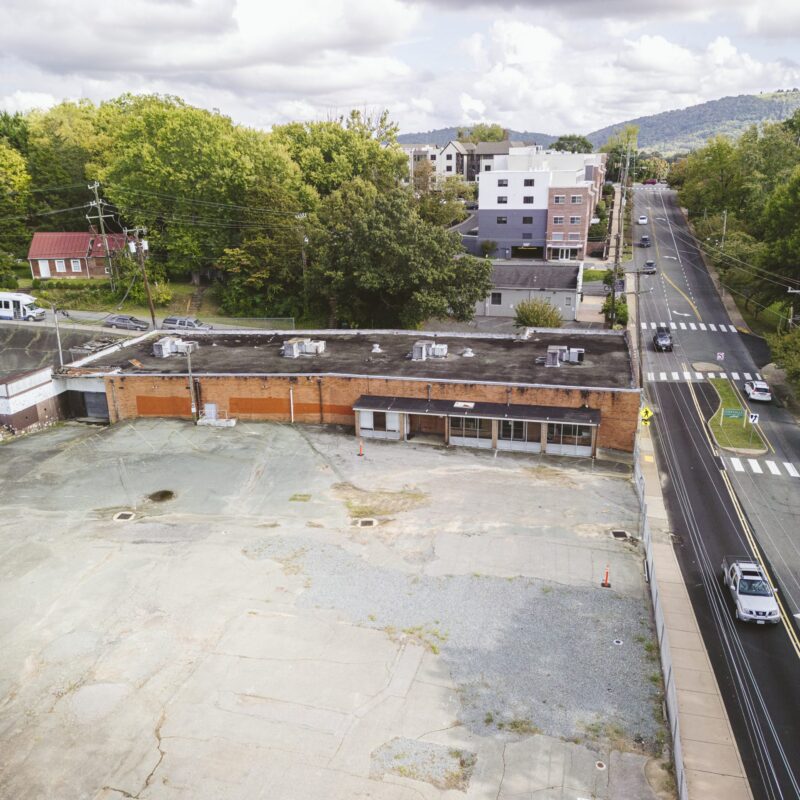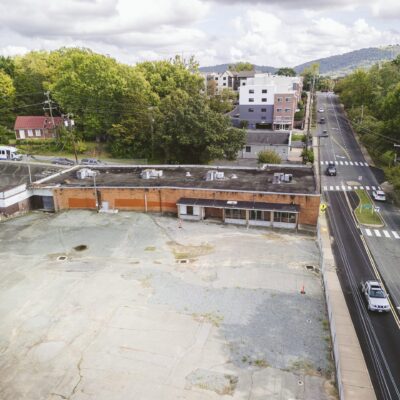Tomorrow night, Charlottesville City Council is slated to approve sale of 401 Fourth St. to Virginia Supportive Housing (VSH), for development of a single-room occupancy (SRO) facility to provide housing opportunities for area homeless. The city purchased the property from local mental halth services provider Region 10 for $1.55 million, and will sell the property to VSH for the same price, confirms Mayor Dave Norris.
State law prohibits Charlottesville from leasing the property to VSH for more than 40 years; the Virginia Housing Development Authority agreed to fund the SRO, dubbed the Crossings at Fourth and Preston, if the lease totaled 60 years or more. According to the council agenda, Charlottesville will sell the property to VSH and defer payment until 2042.
Last week, a report in the Daily Progress raised questions about VSH’s long-term plans for the property—namely, Councilor Kristin Szakos’ concern that VSH could sell the property to a gas station. Norris says that Charlottesville will lose some control over the property.
"But I’m O.K. with that," he adds in an interview with C-VILLE. "VSH has a very long track record, [and] a very good track record. It never once sold off properties for other uses." Additionally, the project is funded by federal HOME grants, which require the property to remain affordable for up to 20 years. Allison Bogdanovic, VSH’s Director of Housing Development, told C-VILLE in December that construction would like start this month. In light of the sale, Norris says the project will likely break ground in February.
If some locals are prematurely concerned about the project’s post-SRO days, then others may be concerned about the project’s intended goals. Last year brought heightened scrutiny of homeless men and women on the Downtown Mall and a strict panhandling ordinance that some considered a threat to first amendment rights.
"Potentially, the facility could allow folks in need a safe place to live off the street," says Downtown Business Association co-chair Bob Stroh via e-mail. "How that can be accomplished without allowing inappropriate behavior that would negatively impact the neighborhood and the community is the issue."
Stroh, the Downtown Business Association and the Thomas Jefferson Area Coalition for the Homeless (TJACH) were developing a giving campaign to direct money from away from beggars and to The Haven day shelter, which some Downtown business owners felt contributed to an increased homeless presence on the Mall. The campaign was suspended when the term "panhandling" and its connotations proved divisive, and Stroh says the business association has not pursued another partner at this time.
Norris says it is important to remember that Charlottesville has had a Mall-centric homeless population for years. "They don’t tend to congregate in suburbs, they tend to congregate downtown." Norris says the SRO will "put a huge dent" in the number of chronic homeless in the area.
Kaki Dimock, executive director of TJACH, agrees.
"TJACH is happily anticipating the development of Virginia Supportive Housing’s SRO project," says Dimock via e-mail. "Permanent supportive housing represents a new way of thinking about homelessness; that is, if we provide a stable place for people to live and supportive social services, people will do better." Dimock writes that supportive housing "improves the mental health of residents and reduces active substance use," among other benefits.



